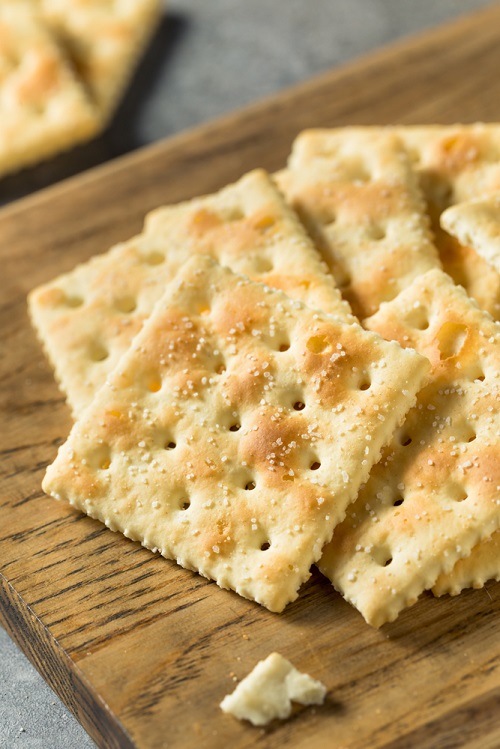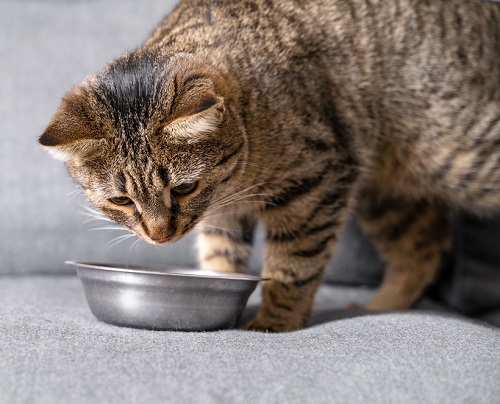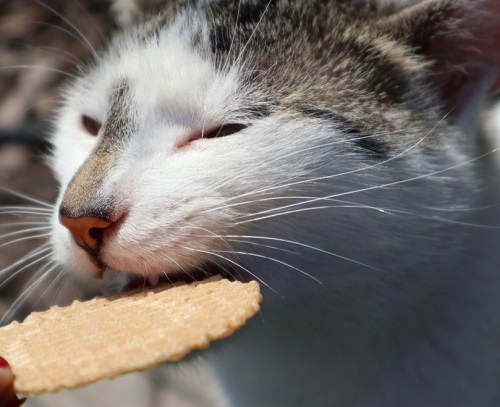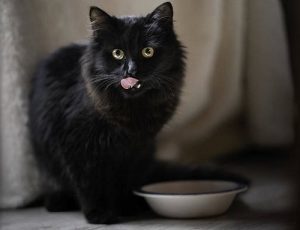Can Cats Eat Saltine Crackers? Read our comprehensive article to learn more about the combination of cats and crackers.
Cats are curious creatures who enjoy exploring their environment and trying new things. As a cat owner, you may wonder if it’s safe for your feline friend to eat human foods, such as saltine crackers. While cats have different nutritional needs than humans, it’s essential to understand what foods are safe and which ones to avoid. In this article, we’ll discuss – ‘Can Cats Eat Saltine Crackers?’ and explore the health risks associated with this popular snack.
Can Cats Eat Graham Crackers? Find out here
What Are Saltine Crackers?

Saltine crackers are thin, crispy, and salted crackers made from white flour, baking soda, yeast, and fat, usually vegetable oil or shortening. They are often square-shaped and have a distinct, slightly salty taste. Saltine crackers are a popular snack commonly used in recipes as a crunchy ingredient or garnish. They are also often served with soup or chili.
Can Cats Eat Saltine Crackers?
Can Cats Eat Saltine Crackers? Yes, cats can eat a saltine cracker, but it’s not an ideal food for them. Felines require a diet high in animal protein to maintain their overall health and well-being. On the other hand, saltine crackers are primarily made up of refined carbohydrates and contain very little nutritional value for felines. But if your furbabies want to munch on saltine crackers, giving them small pieces occasionally doesn’t cause any serious harm. However, it’s always best to feed your cat a specifically formulated diet and avoid giving them human foods that may not be suitable for its digestive system.
Note- Keep all human foods out of your feline’s reach to prevent accidental ingestion and potential health issues.
Risks Of Feeding Saltine Crackers To Cats

- Salt: Saltine crackers are high in salt, which can lead to dehydration, electrolyte imbalances, and other health problems in cats if consumed in excess.
- Health problems: Regular consumption of saltine crackers can lead to obesity, stomach upset, and digestive issues, as they are not used to process large amounts of carbs and salt.
- Unhealthy feeding habits: Feeding cats human foods like saltine crackers also develop unhealthy eating habits, making it harder to transition them back to a balanced diet.
- Choking: Accidental ingestion of saltine crackers or other human foods can also pose a choking hazard or cause gastrointestinal blockages in cats.
What To Feed Cats With Stomach Issues?
If your cat has stomach issues, consult with a vet to determine the underlying cause and the appropriate treatment plan. In some cases, dietary changes may be recommended to help manage your cat’s symptoms.
Here are some general guidelines on what to feed cats with stomach issues. Remember, every cat is different, and what works for one may not work for another.
- Digestible protein: Feed your cat a high-quality, easily digestible protein source, such as cooked chicken, turkey, or fish. Avoid feeding your cat high-fat or greasy foods that can be difficult to digest.
- Low-residue foods: Choose easily digestible foods that can help reduce the workload on your cat’s digestive system. Examples include boiled rice, cooked sweet potato, or canned pumpkin.
- Moist foods: Moist foods like canned or wet cat food are beneficial for felines with stomach issues, as they are easier to digest and help prevent constipation.
- Limited ingredient diets: If your cat has food sensitivities or allergies, a limited-ingredient diet containing a single protein and carbohydrate source may be beneficial.
Can Cats Eat Saltine Crackers? Quick Takeaways!

- Saltine crackers are thin, crispy, and salted crackers made from white flour, baking soda, yeast, and fat.
- They are not recommended for cats, which require a diet high in animal protein.
- Saltine crackers are primarily made up of refined carbs and contain very little nutritional value for felines.
- Feeding cats human foods like saltine crackers can lead to health problems, including obesity and digestive issues.
- Saltine crackers are rich in salt, causing dehydration, electrolyte imbalances, and other health problems if consumed in excess.
- Accidental ingestion of saltine crackers or other human foods can pose a choking hazard or cause gastrointestinal blockages in cats.
- When feeding cats with stomach issues, choose easily digestible protein sources, low-residue, moist foods, and consider limited ingredient diets under the guidance of a vet.



